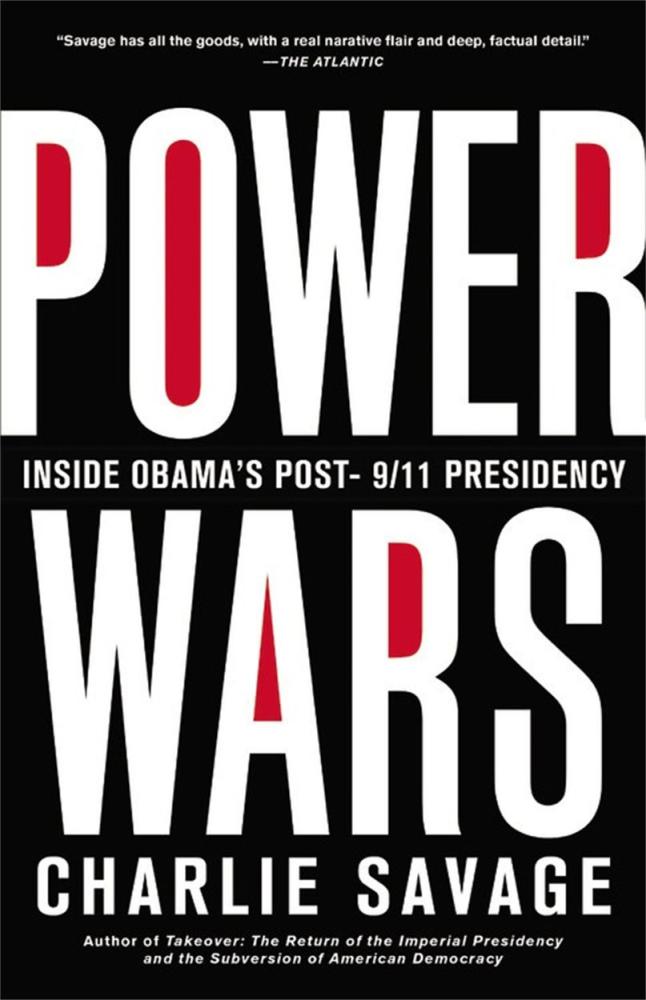Barack Obama promised change from George W. Bush’s global war on terrorism. But the Obama administration used drones to kill suspected militants and vacuumed data on Americans’ phone calls. Obama criticized Bush’s unilateralism and secrecy, but launched wars without going to Congress and presided over an unprecedented crackdown on leaks. As the New York Times New York Times book reviewer Gideon Rose wrote of Power Wars: Inside the Post 9/11 Obama Presidency by Pulitzer Prize winning journalist Charlie Savage explores how and why Obama and his legal team, an elite, liberal group who vowed to restore the rule of law, end up accused of entrenching the sweeping powers of the post-9/11 security state. If legitimate, the accusation stands to change the legacy of Obama’s entire presidency.
In a thoughtful, highly flattering review in The New York Times Gideon Rose wrote:
When Paris was attacked politicians and pundits fell all over themselves rushing to proclaim what Washington should do next in the war on terror. The vast majority of them would have done better to keep quiet and read Charlie Savage’s new book, “Power Wars,” instead. It offers a master class in how to think seriously about crucial aspects of the subject.
A Pulitzer Prize winner, a reporter for The New York Times and the author of an earlier book on the George W. Bush administration, Savage provides a comprehensive, authoritative history of the legal side of national security policy making during the Obama years. That might sound dry and forbidding, especially in a book so dense and long (almost 700 pages of text). But anyone truly interested in foreign policy or national security should find it essential and enthralling, thanks to the author’s intelligence, objectivity, legwork and literary skill.
Savage has the instincts of a journalist but the soul of a wonk. He understands that policy making is about choice, and for every issue discussed — from detention and interrogation of terrorist suspects, to surveillance and targeting, to the White House’s tussles with Congress over war powers — he methodically describes the problems administration officials faced, the options they considered and why they decided as they did. Readers come away understanding not just what happened but why — and the legitimate grounds for agreeing or disagreeing with the choices made.
The heroes of the book are well-intentioned officials struggling to balance the competing demands of legality, democracy and national security. One senses that whether or not Savage agrees with their specific positions, he respects the honest people “in the arena,” as Theodore Roosevelt put it, who try to find the least bad course in a fallen world. The villains, meanwhile, are not only the actual bad guys but also those officials who don’t grasp the full intellectual, moral and practical responsibilities of their positions. For example, Savage has nothing but icy contempt for an intelligence court judge who makes a dodgy ruling accompanied by procedural irregularities and doesn’t even bother to write an opinion explaining his reasoning. And his portrait of cynical politicians who demagogue counterterrorism policy is scathing.
There have been debates about the laws of war for centuries, but over the last couple of decades the scope and complexity of national security law have exploded as terrorism has thrust the United States into an omnipresent conflict with malevolent stateless actors operating in the shadows. Democratic governments naturally want to do whatever they can to protect their citizens, Savage notes, but they also want to avoid breaking the law — and so it becomes crucial to decide just what counterterrorism tools are legally permissible.
The George W. Bush administration entered office already determined to eliminate what it saw as excessive post-Watergate restrictions on presidential authority, and the 9/11 attacks only strengthened that conviction. So the administration initially dealt with the legal dilemmas of counterterrorism by having sympathetic government lawyers authorize the aggressive policies it wanted, using a somewhat more sophisticated version of Richard Nixon’s reasoning that “when the president does it, that means that it is not illegal.” Here as elsewhere, in its later years the administration abandoned or reined in some of its most controversial policies and rationales, but observers on both sides of the aisle expected dramatic changes with the arrival of a Democratic administration in 2009. Why those changes never happened is the underlying theme of Savage’s book.



